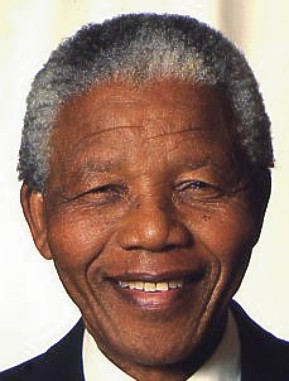It was 20 years ago this week that Nelson Mandela was released from prison. I enjoyed hearing the retrospectives of that time on the radio this week, and so I was extra motivated to find a window of time to go see the movie, Invictus on Friday. Really glad I did.

I’m not much a fan of rugby…a wild and painful-looking sport. But I was captivated by how Nelson Mandela used the processing of the sport as a means to unify two factions with a long and violent history filled with pain and injustice. He is able to convince those around him to respond with compassion rather than retaliation…allowing opportunities for healing and unification.
As a therapist, the highlight of the movie was the scene immediately after the black South Africans unanimously agreed to abandon the “Springboks” name and the green and yellow colors of the national team in moving forward. They want a fresh start with identifying the national team as “Proteas”, something the other national teams were doing. Nelson Mandela comes to their meeting, and at huge political risk, challenges them to reconsider. He agrees that he, too, used to cheer against the Springboks, a sign of white minority rule, when he was in prison. He would cheer for the opposing team, no matter who they were, because the South African Springboks were playing for the minority oppressors. He reminds them, that now, with a united South Africa, that all of South Africa is on one team. He reminds them of the importance and significance of the “Springbok” name and colors to the people who were once their enemies, and with whom they are now working to somehow create a new unified country. Nelson challenges them to be gracious and extend the ability to keep the name, to not strip the team and its supporters of what is important and familiar. He encourages this decision as one that is important to demonstrate that tolerance, cooperation and respect are being extended by the black South AFfrican community…to not return oppression with further oppression.
His motion wins, narrowly.
He is able to convince people to not retaliate. I remember Tevye saying in Fiddler on the Roof, “if everyone takes an eye for an eye and a tooth for a tooth, then the whole world will be eyeless and toothless.” The black African community chose to take the high road and extend grace.
The movie goes on, demonstrating (I suspect with some liberties with regards to historical accuracy as most movies generally do) how attitudes are slowly changed, and the country becomes united as the team strives to win the world cup. At one point, Nelson Mandela and the captain of the rugby team have tea. On the way to the meeting, the captain asks the security guard what kind of man Nelson Mandela is. The security guard comments that with previous governments, his job as security was to be invisible. With Nelson Mandela, he is not invisible…Mandela and he talk, and when Mandela finds out what his favorite sweets are, the security guard receives some as a gift when Mandela returns from overseas. “With Mandela, no one is invisible.” Mandela is respectful to all, and chooses to look beyond his years of imprisonment, to establish a new culture of working together. He lives out his challenge to the community on a personal leve.
Mandela has the ability to center himself, regulate his reactions, and choose to respond in a way that allows communication that ultimately works for the greater good. He doesn’t ignore the history of oppression and injustice, but neither does he allow it to destroy the current potential for rebuilding.
Seems to me that if you are in a relationship that feels painful, and your first instinct is to retaliate, it might be a good idea to challenge yourself to view Invictus before you make a decision. I know I’ll be thinking about this one for a while. Thank you, Nelson Mandela, for your example of peace making.






Write a Comment